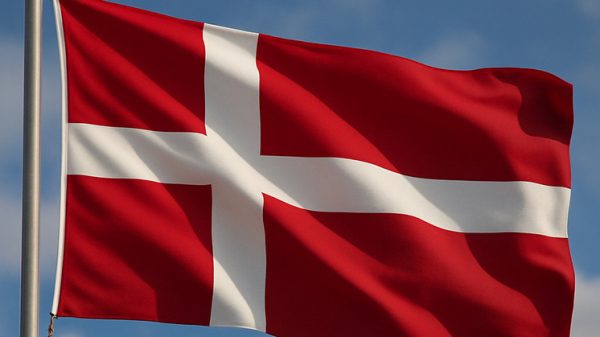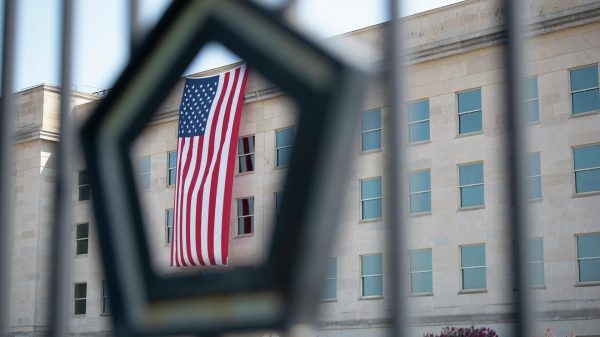
Amid apparent relief from the renegotiation of the agreement with the EU in January 2020 at the end of 2025.
According to current polls, it is highly likely that Labor, once in power, will be the ones to negotiate with Brussels on any changes to the current agreement. Those who left fear betrayal, those who remain feel an opportunity.
The left-wing Europhiles are already developing a strategy by which the Labor government can bring the UK back into the EU. They talk about using the first term to blame Brexit for all of Britain's ills, soften the public on what's to come, and then use the second term to start the reunification process.
Officially, Labor's policy is that they will not try to cancel Brexit and will not seek reunification with the single market or customs union. Sir Keir Starmer, however, tends to vacillate when it comes to his political positions, so it would be foolish to assume that he will never change his mind, especially if he sees fit.
After all, he is a man , who just three years ago, as Brexit shadow secretary, put Labor in a second referendum, choosing «Remain» as one of the options.
Euroskeptics saw many warning signs in Shadow Chancellor Rachel Reeves' US speech earlier this week. Reeves, who, like Sir Keir, voted to stay in 2016, told his audience Labor would take advantage of the 2025 revision to «make it easier to trade with Europe and re-establish ties with our closest neighbours.»
< p>Despite being in Washington DC, Reeves spoke of the need for Labor to look to Brussels for Britain's trade future. She may already be suggesting that Donald Trump or another Republican president will be in the White House by 2025, which means that Labor will turn its back on America anyway.
Her Brexit speech was just as instructive. She said the government was watching «Brexit without a plan, bringing widespread uncertainty to our economic life» and spoke of the «barriers to trade it has erected with its chaotic Brexit deal.»
To some Brexiters, it sounded like the first phase of the Rejoiner conspiracy had already begun: blame Brexit and talk about closer ties with the EU.
Greg Hands, chairman of the Conservative Party, is among those who fear that Labor will try to cancel Brexit. “We know what Sir Keir Starmer wants to achieve,” he says. “Less than three years ago, he nominated Labor for a second referendum. The language used by Rachel Reeves is perhaps meant to win the support of those business leaders who were against Brexit, and there is really big risk in all this.”
Hands suspects that the idea of a customs union with the EU will move first, partly because in the dim and distant past of the so-called significant votes of Parliament on the Brexit deal in April 2019, it was the Ken Clark proposal that proposed a customs union deal. who came closest to defeating the government, only four votes short of a majority.
“A lot of evidence indicates that Labor wants to be in a customs union with the EU,” he says. “At various times they have been very specific about the lack of a single market, but less specifically about a customs union, because Turkey has shown that it is possible to have a partial customs union without freedom of movement, although of course Turkey does not have the right to vote. EU policy.
“It is possible that he will then find ways to facilitate migration through more student exchanges, more skilled workers from the EU, and before you know it, you are getting closer to being back in a world of free movement.”
< p>Last year, net migration reached a record 606,000 people, mostly non-EU citizens, which was taken by the remnants as proof that freedom of movement was never a problem in the first place.
2605 net migration,
labor resources. He already has a plan to use his first term to lay the groundwork for sweeping reforms in his second term. Tony Blair's second term was dominated by civil service reform and tax breaks (and the wars in Afghanistan and Iraq) after he used his first term to rally support for policies and raise money to implement them by raising taxes.
Anand Menon, professor of European politics at King's College London and director of the United Kingdom's Independent Initiative for Changing Europe, says: «I don't think [Labor] can talk about re-entry into the next parliament, but it certainly can.» . that debate will rage within the Labor Party and I believe that the first party conference after Labor's victory will have people trying to get the EU on the agenda.»
Sir Keir wants to extend suffrage to all 16- and 17-year-olds and the 3.4 million EU citizens who have settled in the UK, in what Hands previously called «an attempt to falsify the electorate» to «pull the UK back into the EU.» secretly». Nadhim Zahavi, one of his predecessors, described it as “the start of a strategy to soften the nation towards a cancel Brexit.”
By expanding the electorate with like-minded people, Sir Keir would have come under pressure to pass a manifesto for a second term about holding a new referendum on EU membership.
Alternatively, if Labor fails to win a majority but becomes the largest party in the 2024 elections, they will no doubt form a coalition with the Liberal Democrats. Some Liberal Democrat supporters would like to see their party take a bold stand against Brexit now, but the Liberal Democrats are not currently talking about reunification because they are making headway in areas that have voted strongly to leave, such as the Southwest, and they back to their standard operating procedure of telling local voters whatever they want to hear instead of having a coherent national policy. However, the party's price for a coalition agreement will undoubtedly be not only in voting reform, but also in moving towards reunification with the EU.
Those joining the Labor Party are also too cunning to show their hand right now. One passionate Europhile Labor MP told The Telegraph: “Those 200 or so [Labor MPs] who met every day during the Brexit vote didn’t seem to even mention it because we seem to be chasing those places in the Red Wall [that voted to leave].”
Those who helped negotiate the Brexit deal, or more formally the Trade and Cooperation Agreement (TCA), cite Labour's «small steps» towards reunification. One of the sources involved in crafting the deal said: «They are not ruling out anything related to dynamic alignment or European Court of Justice (ECJ) rulings.»
«They will argue that dynamic alignment [maintaining the same and the same regulatory standards for goods and services] will help allow UK and Northern Ireland trade checks, and the next step is to relax EU/UK checks, and before you know If they say, “We accept their rules and standards, we can just join them.»
Jacob Rees-Mogg, former Brexit Opportunity Minister, believes that Labor's opposition to the EU law retention bill, which aims to scrap laws made as a result of the UK's membership of the EU, is because Sir Keir wants to «shadow» the EU, which means he didn't «have to introduce new laws, which would be much more difficult than doing everything quietly.»
That would certainly help keep his options open if he intended to bring Britain under the yoke of the EU or even seek readmission.
Labor has already started talking about how they might try to change the Brexit deal when it is renegotiated in December 2025. David Lammy, the shadow foreign secretary, said Labor would push for an agreement on food and agricultural standards, and Sir Keir said Labor would push for the removal of visas for touring creative artists such as pop singers.
< p>Brexit supporters argue that Labor is naïve if they think such changes will be free. “They won’t get everything they want,” says one of the sources involved in the original Brexit talks, “and everything they want will come at a high cost. People in the EU are already talking about Labor wanting to make choices, like allowing free movement for creative artists to go on tour, but the 27 member states want Bulgarians and Romanians to be able to come here for seasonal work. The achievements that Labor wants to achieve will prove more difficult than they think.”
If Sir Keir fails to satisfy the newcomers, they have already made it clear that they will pursue their plans with someone else instead. Former Labor whip Rosie Duffield has said in the past that Labor supporters will eventually «try to shift the leadership» of the party to support reunification, while acknowledging that they need to «let the dust settle» on Brexit first. She suggested that by the time that happens, there might be another leader. Others seek to exploit his weakness.
Mike Galsworthy, the new chairman of the UK European Movement (founded in 1949 by Winston Churchill), a member of the Labor Party who describes himself as the «de facto leader of the UK reunification campaign», says: «Starmer will be led by the nose and not do any leading. He will be under enormous public and business pressure to forge closer ties with Europe, and he will have to either resist or succumb to this pressure.
“It is difficult to predict what he will do because he is a man of pragmatism, not principles. He is reassuringly inconsistent in his words.”
Galsworthy shares the view that there will be no referendum in the first term of the Labor administration, but it will be used to make the UK “ready for reunification”. ” to a possible referendum if Labor wins again.
If Labor does decide to explore reunification with the EU, they will first have to reach an internal agreement on what they want. The whole country knows from years of mind-numbing Brexit negotiations that there are always as many opinions about what constitutes the best kind of relationship with Europe as there are people in any room.
We should all have to re-read the deals in Swiss style, Schengen countries, Canadian models, Euratom, Europol, Horizon, passportization, rules of origin, EFTA, GATT, IEM, CETA, EAW and others.
Some have pushed for a Norwegian-style arrangement, insisting that it offers the best of both worlds by offering access to a single market without full membership. Others would call it following the rules.
And if Labor eventually decides to do a wholesale «reversal», the EU could push for the euro to be replaced by the pound sterling. Few people on both sides of the Channel believe Brussels will ever allow Britain to reunite on exactly the same terms it had before it left, meaning its budget rebate and ditching the single currency and Schengen travel agreement could be lost. It will not be easy, even for those who vote for the remaining seat in 2016.
Rodrigo Ballester, a former European Commission cabinet minister and now head of the Matthias Corvinus Collegium Center for European Studies in Budapest, disagrees. He says: «Member states and the EU Commission would roll out a red carpet for Britain if Labor asked for reunification, especially as they have a natural sympathy for the left.»
“If Labor says 'we made a mistake, we want to go back to mum and dad' they will be very receptive and I think reunification could be expedited to a three or four year process. Much of your legislation is already in line with EU law and I think it's entirely possible that the UK will be granted a waiver of the euro and possibly migration. I don't think in this situation one would accept or leave it.»
Accessors rely heavily on opinion polls, which show up to 60% of people say Brexit was a bad idea, and the majority in some polls say that if another referendum were held now, they would vote to stay.
2705 Was it so? wrong decision to vote out?
But this is not the same as wanting a second referendum. According to an Ipsos poll, less than 10% of people consider Brexit an important issue, and sociologists believe that if the economy improves, voters are less likely to consider Brexit a failure.
We also do not know today what the EU will look like in 10 years. Ukraine, which received EU candidate status last year, could become a full member by that time. Other candidates for membership are Turkey, Serbia, Albania, Montenegro, Moldova and Bosnia and Herzegovina, which are likely to drain EU resources.
Accessors also like to talk about the demographic imperative of returning to EU membership. According to YouGov, 75% of young people aged 18 to 24 voted to stay in the 2016 referendum. And when they become the generation that runs the country, they will want to impose their will, or so the argument goes.
But in 10 years, when the Brexit debate fades from memory and a new generation comes in with no memory of Erasmus programs or free movement, will EU membership be their top priority or will they be more concerned about climate change?
There is also no guarantee that the EU will allow Britain to reunite. From the perspective of some Member States, Britain was welcomed like HP Sauce on a croissant and her return would give the UK the opportunity to veto Brussels' favorite projects.
The UK is the only country to ever leave the EU, and some in Brussels have already expressed concern that if it joins again, it might change its mind again.
Also, there is the question of a referendum . As an advocate for a second referendum for the first time, Sir Keir would no doubt have to promise the British public a popular vote not only on reunification but also on a final deal.
Past experience shows that even if 60% of people say they are unhappy with Brexit, this does not necessarily mean that 60% will vote for reunification. Before the 2016 referendum, more than two-thirds of the polls predicted that the UK would vote to stay, and bookies were offering odds of 1/4 on voting to stay, meaning they were only 20% likely to exit.
Would Sir Keir risk his entire career because of such uncertainty? Equally relevant is the question of whether he, or anyone else in the Labor Party, has the stamina to see the fight through. Accession to the EU is not an instant process. It will take years to reach the stage of a referendum, and a few more years for the UK to be admitted if it applied for accession in accordance with Article 49 of the Treaty on European Union.
As Professor Menon says: “If you say «let's reunite», you talk about a project for at least 10 years. Our governments have shown that they are not very good at thinking beyond next Friday.”


























































Свежие комментарии